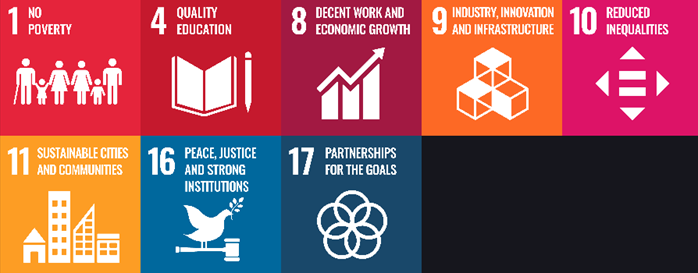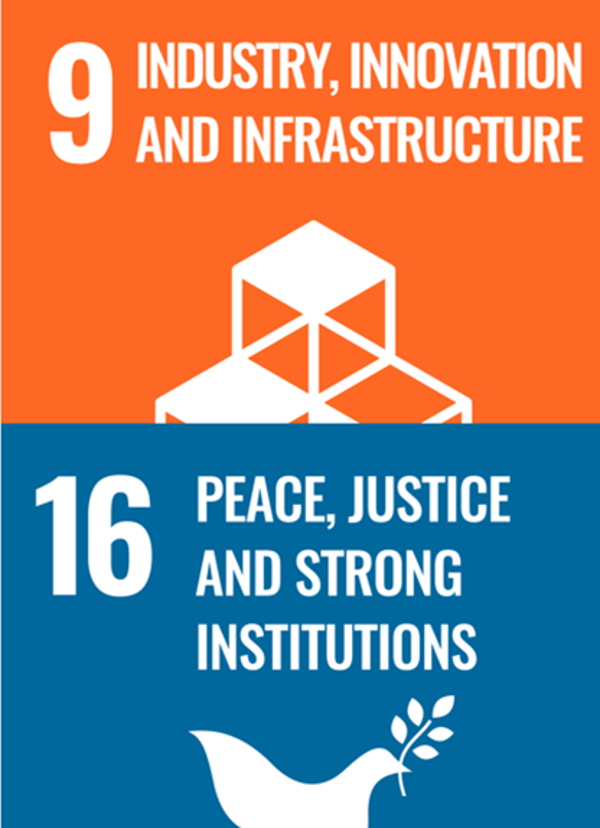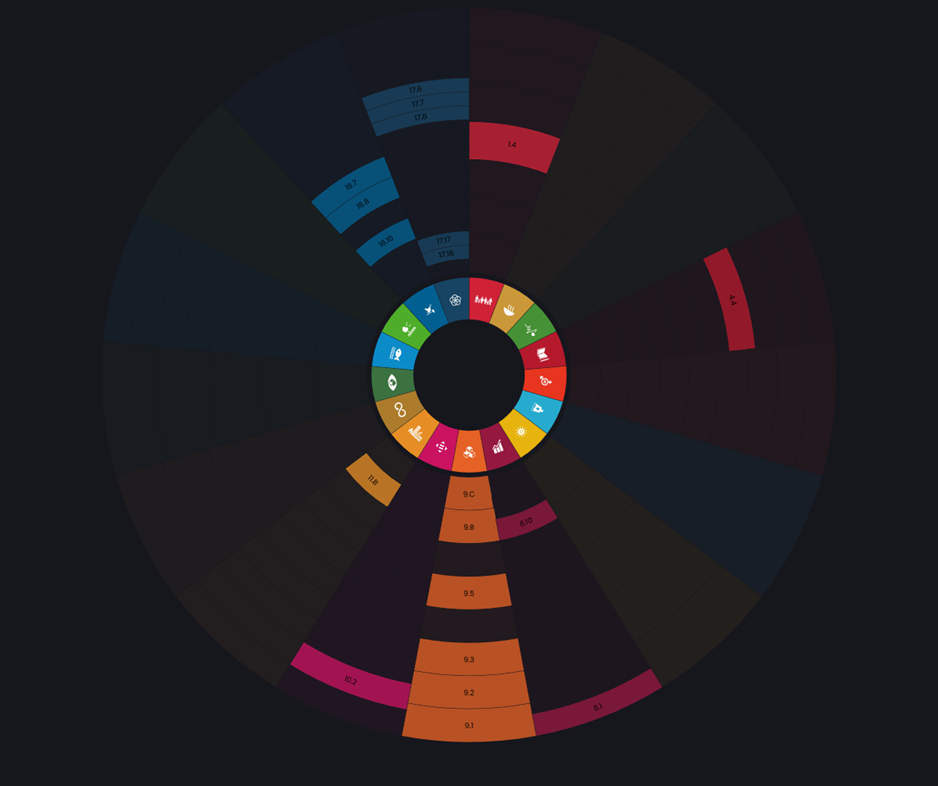Tom Acton
Professor in Business Information Systems
& Discipline Head
J.E. Cairnes School of Business and Economics, University of Galway



Tom is a professor in Business Information Systems, and current Head of Discipline. From 2015 through 2020 he was Head of School of Business & Economics. Previously he was Vice Dean for Teaching & Learning, and Head of the discipline of Business Information Systems. He has served as associate editor on a number of journals, including the European Journal of Information Systems and the Journal of Theoretical and Applied E-Commerce Research. Prior to joining the university he worked in the software and private education sectors.
Tom's work contributes to these SDGs

Tom's work on cybersecurity provides guidance to institutions on best practices for secure business, cyber-aware learning, and frameworks for strong security across people, processes and technologies.
Tom's work focuses on education, corporations and public service provision.
Key Targets: 9.1 Develop sustainable, resilient and inclusive infrastructures, 9.5 Enhance research and upgrade industrial technologies, 9.B Support domestic technology development and industrial diversification
Cybersecurity is a growing concern for individuals, businesses, other organisations and governments. Artificial intelligence increases the risks. Guidance and frameworks for good practice are needed more than ever.

Teaching

Cybersecurity Risk Management is a course on the new MSc Cybersecurity Risk Management that aims to support the building of resilient infrastructure, promote inclusive and sustainable industrialisation, and foster innovation.
To realise SDG-focused outcomes, the course involves hands-on cyber-range activities where students attack and defend using technological systems, interact with numerous industry people at the cyber coalface regionally and globally, and experience direct exposure to industry best practice in cybersecurity risk management.
Supporting Targets: 9.1 Develop sustainable, resilient and inclusive infrastructures, 9.5 Enhance research and upgrade industrial technologies, 9.B Support domestic technology development and industrial diversification
Cybersecurity Risk Management This postgraduate taught course provides the base knowledge and understanding of core cybersecurity concepts needed for cyber-risk management in organisations. The course is structurally aligned with the curriculum of the internationally-recognised CompTIA Security+ professional certification.
The course is focused around SDG 9, and teaches students how to identify and defend against cybersecurity threats, understand cybersecurity concepts and best practices, and assess and manage cybersecurity risk.
Supporting Targets: 9.1 Develop sustainable, resilient and inclusive infrastructures, 9.5 Enhance research and upgrade industrial technologies, 9.B Support domestic technology development and industrial diversification
Engagement
In the area of cybersecurity, Tom is involved with CyberIreland, has consulted with the Irish Government, and has numerous involvements with industry. The University of Galway's MSc Cybersecurity Risk Management taught postgraduate programme, for which Tom is Programme Director, has heavy involvement with industry, in particular Centripetal, and with global experts in the area who help to deliver a summer school as part of the programme.

Direct impact SDG Targets
4.4 - Increase the number of people with relevant skills for financial success
9.1 - Develop sustainable, resilient and inclusive infrastructures
9.5 - Enhance research and upgrade industrial technologies
11.B - Implement policies for inclusion, resource efficiency and disaster risk reduction
16.7 - Ensure responsive, inclusive and representative decision-making
16.10 - Ensure public access to information and protect fundamental freedoms
17.6 - Knowledge sharing and cooperation for access to science, technology and innovation
17.17 - Encourage effective partnerships
17.18 - Enhance availability of reliable data
17.19 - Further develop measurements of progress
Indirect
1.4 - Equal rights to ownership, basic services, technology and economic resources
8.1 - Sustainable economic growth
8.10 - Universal access to banking, insurance and financial services
9.2 - Promote inclusive and sustainable industrialization
9.3 - Increase access to financial services and markets
9.C - Universal access to information and communications technology
10.2 - Promote universal social, economic and political inclusion
16.8 - Strengthen the participation in global governance
17.7 - Promote sustainable technologies to developing countries
17.8 - Strengthen the science, technology and innovation capacity for least developed countries

Research

Featured Publications
|
References |
SDGs |
|---|---|
|
Coming soon: Teaching Cases in Information Systems: Digital Transformation, Cybersecurity and AI, A Textbook of Cases. Kendall-Hunt Publishers. Forthcoming Sep. 2024. |
9; 16; 11 |
|
Acton, T., Datta, P. M. (2024). Endpoint Cybersecurity: When Smart Devices Turn Stupid. Journal of Information Technology Teaching Cases, 0(0), 1-8, https://doi.org/10.1177/20438869241242142 |
9 |
|
Acton, T., Datta, P. M., Golden, W. (2023). Deciding on Cloud-Managed Services: The Cloud Trilemma. Journal of Information Technology Teaching Cases, 0(0), 1-13, https://doi.org/10.1177/20438869231211599 |
9 |
|
Datta, P. M., Acton, T. (2023) Did a USB drive disrupt a Nuclear Program? A Defense in Depth (DiD) Teaching Case. Journal of Information Technology Teaching Cases, 0(0), 1-11. https://doi.org/10.1177/20438869231200284 |
9 |
|
Datta, P. M., Acton, T. (2023). From disruption to ransomware: lessons from hackers. Journal of Information Technology Teaching Cases, 13(2), 182-192. https://doi.org/10.1177/20438869221110246 |
9 |
|
Datta, P. M., Zahn, B. J., Attias, L. and 4 more (...) (2023). GiusBERTo: Italy’s AI-Based Judicial Transformation: A Teaching Case. Communications of the Association for Information Systems, 53751-53766. |
16 |
|
Datta, P. M., Acton, T. (2023). Ransomware and Costa Rica’s National Emergency: A Defense Framework and Teaching Case. Journal of Information Technology Teaching Cases, 0(0), 1-12. https://doi.org/10.1177/20438869221149042 |
16.3, 16.4; 17.1 |
|
Clohessy, T., Acton, T., Callinan, C. and 2 more (...) (2018). An Analysis of the 2016 American Presidential Nominees’ Tweets: A Magical Realism Perspective. ICIS 2017: Transforming Society with Digital Innovation. |
5.0 |
|
Clohessy, T., Acton, T. (2019). Investigating the influence of organizational factors on blockchain adoption: An innovation theory perspective. Industrial Management and Data Systems, 119(7), 1457-1491. |
9 |
|
Clohessy, T., Acton, T., Morgan, L. (2014). Smart city as a service (SCaaS): A future roadmap for e-government smart city cloud computing initiatives. Proceedings - 2014 IEEE/ACM 7th International Conference on Utility and Cloud Computing, UCC 2014, 836-841. |
8; 11; 16 |
|
Clohessy, T., Acton, T. (2013). Cloud enterprise resource planning (ERP): A viable alternative for Irish e-government. 26th Bled eConference - eInnovations: Challenges and Impacts for Individuals, Organizations and Society, Proceedings, 23-31. |
16 |
|
Clohessy, T., Morgan, L., Acton, T. (2014). An exploratory study into IT governance implementations in living laboratory ecosystems and their impact on open innovation effectiveness. ECIS 2014 Proceedings - 22nd European Conference on Information Systems. |
9; 11 |
|
Clohessy, T., Acton, T. (2013). Open innovation as a route to value in cloud computing. 26th Bled eConference - eInnovations: Challenges and Impacts for Individuals, Organizations and Society, Proceedings, 421-428. |
9 |
|
Clohessy, T., Morgan, L., Acton, T. (2014). A theoretical framework for examining IT governance in living laboratory ecosystems. IFIP Advances in Information and Communication Technology, 429334-429344. |
9; 11 |
